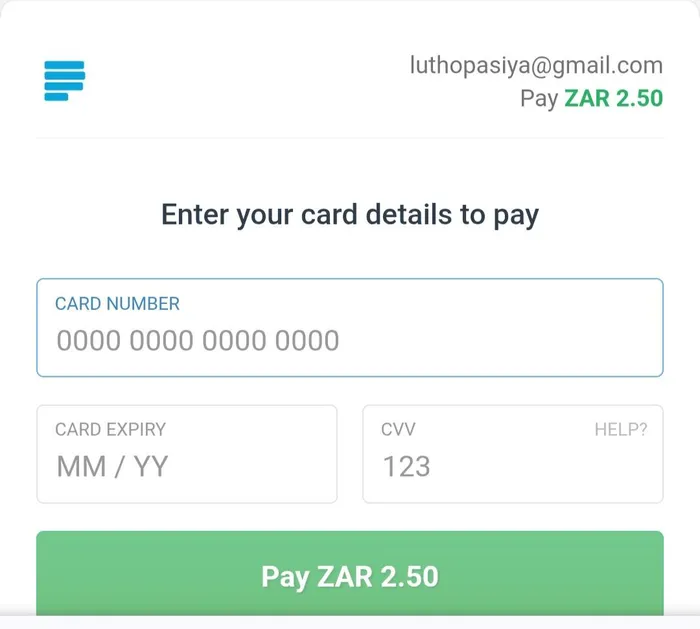
Lasizwe Media personality Lasizwe Dambuza has sparked debate at this year’s SASMAs by asking fans not to vote for him.
Image: Instagram
Media personality and YouTuber Lasizwe Dambuza has become the centre of discussion at this year’s South African Social Media Awards (SASMAs) after releasing a message to his supporters asking them not to vote for him.
Dambuza, 27, is one of the country’s most recognisable online creators. He rose to prominence through his comedic skits on Facebook and has since established a steady digital presence, which has kept him relevant in online entertainment.
At the 2025 SASMAs, he leads the list of nominees with three nods: African Social Media Star of the Year, Most Popular Content Across Platforms and Social Media Personality of the Year.
In a video that went viral this week, Dambuza expressed gratitude for the nominations but surprised his fans by urging them not to vote.
“Please don’t vote for me,” he said. “These three nominations already mean my work is appreciated. That, for me, is a win.”
Dambuza explained that the voting system requires people to spend money, something he said he could not ask of his supporters in good conscience.
“The voting system costs money, and I do not believe you should have to pay to show support. That money could go towards bread, electricity, taxi fare, and actual survival,” he said.
He continued, “I cannot in good conscience ask you to spend your hard-earned money so I can hold a piece of glass that will collect dust. Your support, your comments, your views, your love. That is the real award.”
Paid voting system questioned
When “Independent Media Lifestyle" first reported on the story, it noted that all SASMA categories require paid votes. Supporters initially had to spend a minimum of R10, which bought four votes.
By Thursday night, the SASMA website showed that the minimum spend was R2.50 per vote, with supporters able to decide how many votes to buy.
Some social media users suggested that the minimum purchase requirement may have been changed after criticism.
“It was a minimum of R10 yesterday, according to what I saw. Maybe they changed the price because of the backlash,” one TikTok user noted.
The debate sparked by Dambuza’s video quickly spread online.
While some praised him for putting his followers’ financial realities first, others argued that awards play a role in opening doors for creators and should be supported.

By Thursday night, the SASMA website showed that the minimum spend was R2.50 per vote, with supporters able to decide how many votes to buy.
Image: Screenshot
Social media reactions
On TikTok, user Kay Radebe posted a video discussing the controversy, captioning it, “Are awards shows a scam?” Radebe argued that Dambuza’s message was not reverse psychology but a genuine concern about the financial pressure placed on fans.
“He’s literally saying you guys are going to spend all this money voting, money that you need in this economy, and he’s not going to get any of that. He’s just going to get a glass trophy,” Radebe said.
She added that it was time to have broader conversations about the relevance of awards in 2025.
“How do these award shows make money? They sell ticket sales, they have sponsors and now they also make money from the votes. This particular award show is not sharing any of that with the influencer. Isn’t that exploiting the influencer’s fans?”
Other users weighed in with different views. One wrote, “I wanted to vote, but when I saw that you have to pay to vote, I was like Nope. Voting should be free.”
Another asked, “Where do all those R10s that people pay to vote go? Why isn’t that money, or at least part of it, going to the actual winners?”
But not everyone agreed with Dambuza’s stance.
Another user commented, “Then he must just withdraw his name and let other kids win. These awards help people land more gigs and open doors. He is fine. Let other kids use this opportunity. How fans spend their money is not up to him.”
Broader concerns about awards
This is not the first time the SASMAs have come under fire.
Last year, they trended after creator Onezwa Mbola was excluded from the Food Influencer of the Year category while international influencer Nara Smith was nominated. At the time, organisers responded by saying fans had not nominated Mbola.
The debate has raised questions about whether awards still hold value in an era where creators already have direct engagement with their audiences online.
Some believe awards provide recognition and credibility that can lead to opportunities, while others argue they are businesses designed to profit from fans.
Industry perspective
“Independent Media Lifestyle” spoke to the Behind the Scenes Awards, a non-profit organisation that recognises creatives in media and entertainment. The group explained that awards exist to acknowledge achievements and contributions within industries.
They outlined how their own voting system works. A panel of judges made up of journalists, bloggers and media leaders selects nominees, while the public then casts votes to choose winners. Votes are placed through SMS short codes, which come with costs set by service providers and network operators.
“For example, if an SMS costs R1.50, about 60 cents goes to the network provider, 50 cents to the service provider and 40 cents to the awards organisation,” the group explained.
“If a nominee receives 500 votes, the organisation collects R200, which goes toward production costs such as designing trophies, venue hire, staff, catering and equipment.”
They emphasised that awards organisations do not profit directly from voting lines but rely on them to help cover expenses. “The trophy is the physical symbol of this achievement. It serves as a reminder of a specific moment of triumph and the effort it took to get there,” they said.
SASMA responds
The SASMAs also responded to the backlash.
Marketing coordinator Kholofelo Lehong acknowledged Dambuza’s comments and the broader debate they sparked.
“We’re aware of the public conversation that has emerged following recent commentary by Lasizwe Dambuza and appreciate the interest it has generated,” Lehong said.
“SASMA is a 100 percent independent, self-funded non-profit organisation. We do not receive corporate or institutional funding. Every element, from production to trophies, is made possible through partnerships, sponsorships and votes from fans who want to see their favourite creators celebrated.”
According to Lehong, the R2.50 voting fee is not designed to generate profit but to contribute to the budget of hosting the awards.
“It is simply one way supporters can meaningfully participate in a system that is secure, fair and spam-free.”
Lehong added that the SASMAs aim to support youth entrepreneurship, digital innovation and creator-brand collaboration.
“In a country where youth unemployment remains one of the most pressing challenges, content creation is not just entertainment but a form of enterprise. SASMA exists to highlight that reality and open doors within South Africa’s creative sector.”
As the SASMAs mark their fifth year, Lehong said the organisation remains committed to its mission.
“We remain confident in our purpose, committed to our community and excited to deliver a celebration that honours the impact of South African content creators.”
Related Topics: